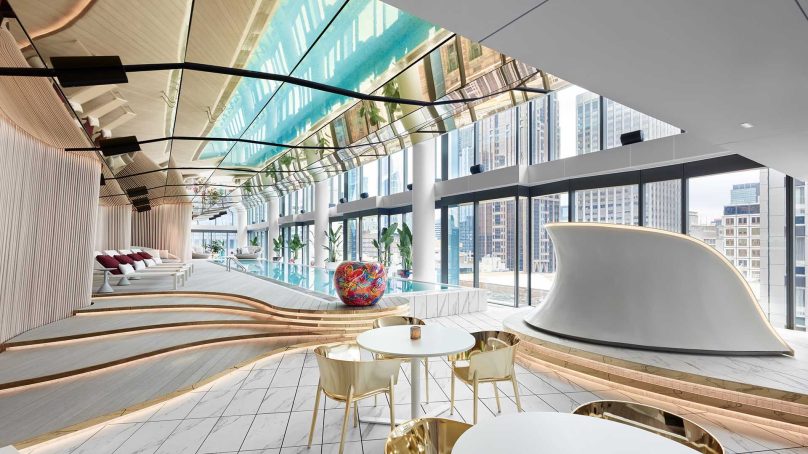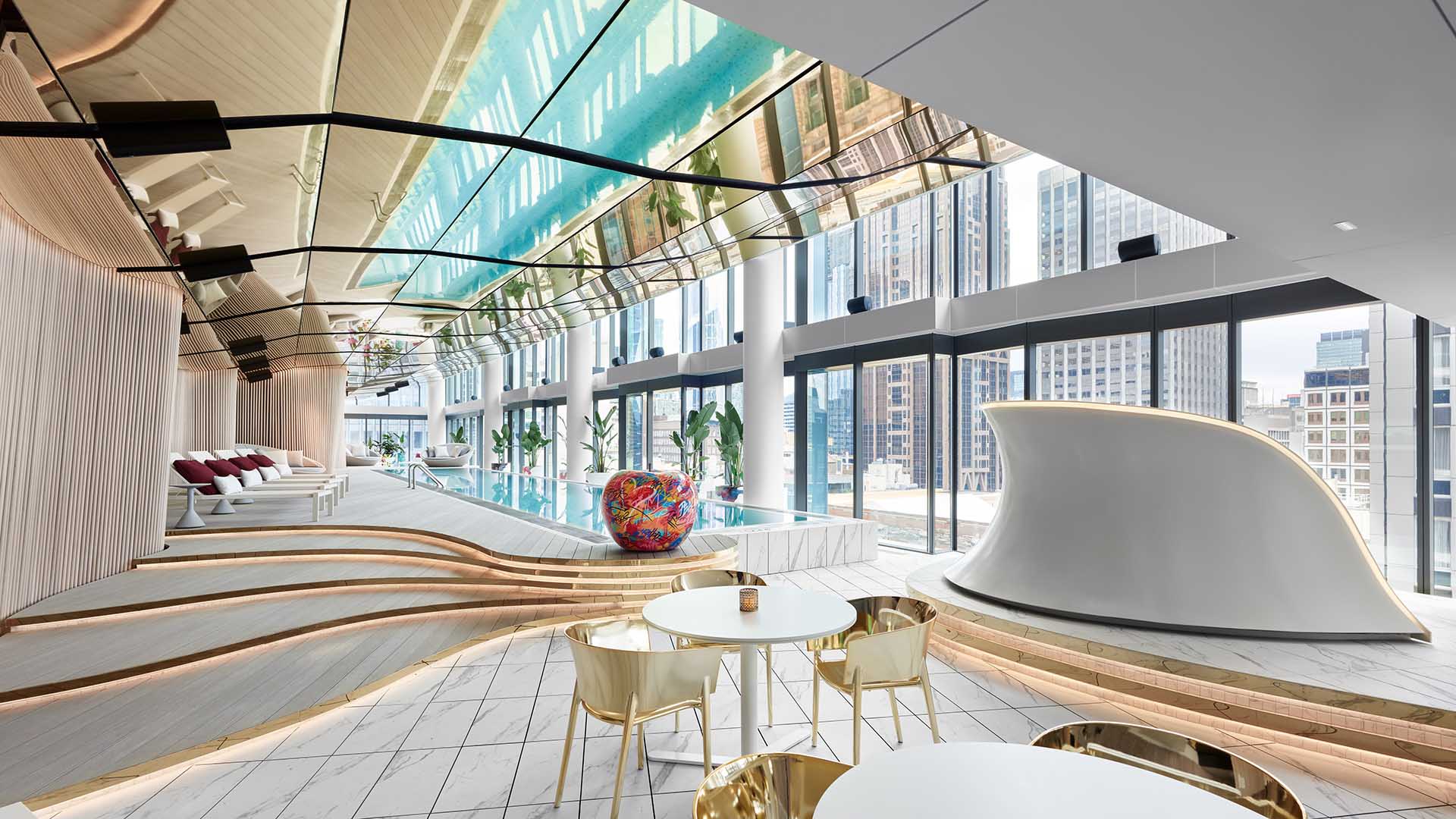

The lifestyle hotel concept combines the design and style of a guesthouse and boutique hotel with the conveniences offered by major hospitality brands to create a unique travel destination. The positioning of a lifestyle hotel focuses on the design and branding of the property. The result are hotels that appeal to guests due to their unique style, brand loyalty programs and high level, consistent service standards.
A recent report by CBRE revealed that lifestyle hotels in the Middle East are on the rise, with guests willing to pay on average 16 percent more, and, in some cases, a 30 percent premium for a lifestyle hotel over a traditional one.
While more traditional hotels market themselves as “home away from home,” the lifestyle hotel is a “social destination” — a place where spaces and experiences are provided to encourage new encounters and social interaction. These destinations act as a magnet for socializing and interactions.
Below, we look at some of the key trends at the core of a lifestyle hotel and what we can expect to see in the future:
A greener hotel
With greater awareness and concern for the current state of the world and our environment, designers have a responsibility to ensure their designs are centered on sustainability. The younger generation, Gen Alpha, for instance, are demanding sustainable designs, such as: green walls, vertical gardens, onsite micro-farms and more.
The wellness lifestyle
Since Covid-19, people are looking to adopt a new mindset and turn to their own emotional needs. Beyond spa days and yoga classes, wellness will become a crucial part of what makes a lifestyle hotel. Health and well-being will converge with all aspects of the customer experience.
Technology
With ever-changing technological advancements, hoteliers are presented with the opportunity to adopt and implement behavior and preference measurement processes and programs. This is now made possible thanks to recent advancements in technology. By gathering guest data, operators can build detailed guest profiles that allow them to provide highly personalized guest experiences and customized loyalty programs.
Furthermore, operational efficiency and savings are being taken to new heights with certain technology advancement. With many operators embracing various forms of technology, predominantly touchless technology — from self-check-in/out to in-room dining — it appears that in 2023 and beyond, in-person services and personal touch will define luxury.
The redefined lobby
The lobby area used to be a passive space, but today it serves a new purpose in the guest journey. Depending on the type of hotel and the hotel brand, we see some hotels focusing on a virtual check-in experience through an application, thereby minimizing and or potentially eliminating an in-person lobby experience. But for lifestyle hotels that believe in the value of personal interactions and social encounters, the lobby is set to become a transformative social space that is exciting, creative, a physical embodiment of a hotel’s brand ethos and values, and one that sets the standard for the guest stay.
Segment diversification
Looking ahead, we can expect to see continuous growth in the number of lifestyle hotels. Within major urban markets, luxury lifestyle hotels will become prominent, rooted in soft brands. This empowers each hotel to make itself a unique destination and create its own personal identity, from its design, style, F&B and guest experiences on offer. Luxury properties, as well as mid-level hotels, will also be considered appealing lifestyle spaces for younger generations. They aim to provide clever, fun yet sophisticated and beautiful yet simple designs, nestled in an urban environment, with a diversified range price. Diversification within the sector will continue.
The exploring culture
Lifestyle hotels are not just restricted and suited to urban environments. As we’ve seen in recent years, people have been seeking the outdoors, looking for refuge from the stress and claustrophobia of urban life, with people traveling more locally rather than internationally. Exploring the unknown and discovering new destinations has always been considered a form of luxury, which has become an even more popular and appealing experience. We now have the technology to allow guests to explore the world with more comfort and security, as well as immerse themselves in places previously not accessible. Moving ahead, we can expect to see more portable concepts, from portable hotel rooms, tented hotels, as well as prefab hotel concepts. These formats will enable remote locations to be accessible by all, as well as financially, allowing hoteliers to provide these types of experiences.
The future holds endless possibilities, and the growth of the lifestyle hotel has been a result of the creative class that gravitates to this type of travel experience as they seek out inspiration, connection and exploration through the road less traveled.

Oliver Corrin,
global head of interiors at Latitude















